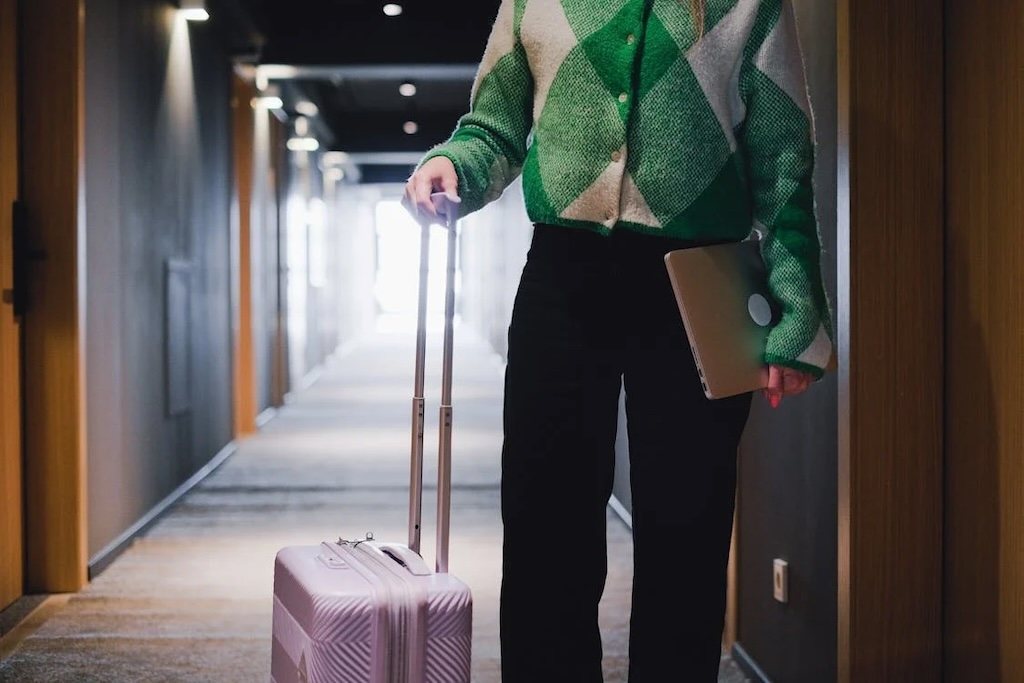
Ensuring the safety and well-being of hotel guests is a top priority for managers. A safe hotel environment not only enhances the guest experience but also protects the reputation of the property.
Guests expect clean, secure spaces where they feel comfortable and protected from harm. This responsibility falls on the hotel management team, who must adopt policies and strategies to ensure safety.
Managers can prevent incidents and legal issues by enhancing security, raising awareness, and training staff. Here’s how hotel managers can create a safe environment for all guests.
Implement Comprehensive Staff Training
Statista notes that as of December 2023, 16.82 million people worked in the U.S. hospitality industry. This figure marks a steady increase from previous years, reflecting the sector’s post-pandemic recovery efforts. With industry growth, training staff effectively has become essential to meet rising demands and ensure safety.
Staff training plays a critical role in ensuring hotel security and guest safety. Managers should prioritize consistent, comprehensive training to prepare employees for various safety situations.
Key areas of focus include:




When staff are properly trained, they are more confident and ready to respond to emergencies. Reinforcing safety measures regularly ensures employees stay vigilant and focused on guest well-being. A knowledgeable team can address security concerns before they escalate, contributing to a safer hotel environment.
How does regular safety training affect staff confidence?
Regular safety training helps employees feel confident in their ability to manage emergencies or difficult situations. It enhances their ability to act swiftly, reducing stress during emergencies. This confidence translates into better guest interactions, as staff members are prepared for various challenges.
Maintain a Clean and Well-Lit Environment
A clean and well-lit environment contributes to both safety and guest satisfaction. Hotel managers must ensure that all public spaces are properly maintained and well-lit at all times. This includes hallways, staircases, parking lots, and entrances.
NIH states that well-lit areas provide visual comfort, a key sensory factor often overlooked in hotels. Optimizing lighting, color, and décor in hotel design enhances guest satisfaction and reduces anxiety. Studies reveal that dim lighting improves taste perception, while music influences how guests perceive colors and light.
A clean atmosphere also encourages people to feel safe and comfortable. Well-lit spaces hinder criminal conduct by limiting options for concealed risks or potential attacks.
Regular hotel inspections aid in the early detection and resolution of maintenance concerns. Creating a well-maintained and welcoming atmosphere is essential for fostering a safe environment where guests feel secure during their stay.
What role does cleanliness play in hotel guest safety?
Cleanliness directly impacts safety by reducing the risk of accidents and infections. A well-maintained environment ensures that guests are not exposed to potential hazards like slippery floors or poorly maintained electrical systems. Regular cleaning and checks prevent issues before they become serious safety concerns.
Foster Strong Collaboration with Local Authorities
Collaboration with local authorities is essential to maintain a safe hotel environment. Managers should establish relationships with local police and emergency services. This partnership ensures that managers can quickly respond to incidents that require external assistance.
Hotel managers should also be familiar with local laws regarding safety and security regulations. Regular communication with law enforcement helps managers stay informed about any emerging threats in the area.
It is also important for hotels to participate in community safety programs. Hotels that collaborate with local authorities benefit from additional assistance and resources, which help to create a more safe atmosphere.
The Growing Problem of Human Trafficking in Hotels
Human trafficking is a growing issue that hotel managers must address to protect guests and their property. Many traffickers use hotels as temporary holding places for victims, which poses serious risks. Managers can prevent human trafficking by training staff to recognize warning signs and suspicious behavior.
According to TorHoerman Law, failing to address human trafficking can lead to significant legal consequences. Hotels that do not take proactive steps to prevent trafficking are at risk of lawsuits. Victims and advocacy groups have filed legal actions against hotels, holding them accountable for facilitating or ignoring trafficking activities.
A November 2024 update from the Lawsuit Information Center mentions that Ohio has become a significant location for sex trafficking lawsuits. A recent lawsuit against hotels for human trafficking accuses Motel 6’s parent company of enabling human trafficking from 2012 to 2015. Filed in Ohio’s Southern District, the lawsuit claims G6, the parent company of Motel 6, benefited from trafficking activities in their hotels.
How do human trafficking lawsuits impact hotels financially?
Lawsuits related to human trafficking can result in significant financial costs, including legal fees and settlements. Beyond financial loss, these lawsuits harm the hotel’s reputation, leading to decreased bookings. Managers should prioritize training and awareness to avoid these legal and financial consequences.
Prioritize Security Technology and Surveillance
Investing in up-to-date security technology is vital to a hotel’s safety strategy. Video surveillance cameras, keycard access systems, and motion sensors help monitor hotel activity 24/7. These technologies provide real-time data, helping to deter crime and identify any unusual behavior.
Fact.MR mentions that the global smart hospitality market is projected to grow from US$ 37.41 billion in 2023. It’s expected to reach US$ 273.27 billion, surging at a 22% CAGR by 2033. Smart hospitality services are set to grow at an annual rate of 24.5%, with software demand progressing at a 21% CAGR.
Surveillance cameras should be carefully positioned across common areas, such as parking lots and corridors. Hotel management must evaluate security videos regularly to ensure that all equipment is in working order.
Keycard access to rooms guarantees that only authorized persons can enter guest rooms. Security technology provides peace of mind to both personnel and guests by ensuring that the property is being watched.
How does security technology reduce insurance costs?
Hotels can reduce the risk of incidents such as theft or vandalism by investing in advanced security technology. Lower incident rates lead to reduced insurance premiums, as insurers recognize the hotel’s proactive safety measures. This long-term financial benefit makes investing in security technology a wise decision.
Hotel guest safety requires more than just basic precautions. It’s about creating a secure and welcoming atmosphere. A clean environment and trained staff are essential, but they’re only part of the equation. To truly enhance safety, hotels must adopt a multi-layered approach.
Collaboration with local authorities strengthens emergency response and helps identify emerging threats. Security technology, like surveillance cameras and keycard access, offers real-time protection and peace of mind. Hotels must also be proactive in addressing human trafficking, a growing concern. When all these elements come together, hotels create a safe environment that protects guests and reduces risks.
Visit our Travel Tips page for more helpful articles!







